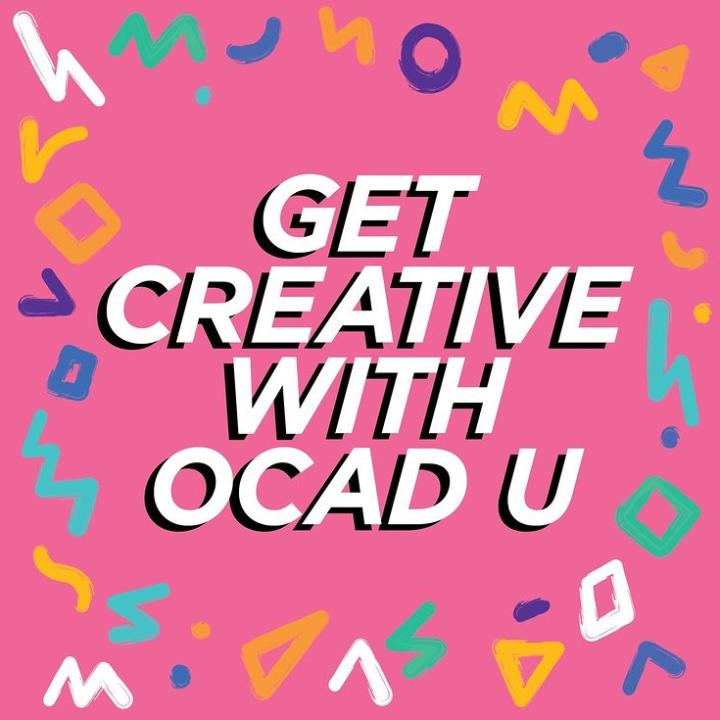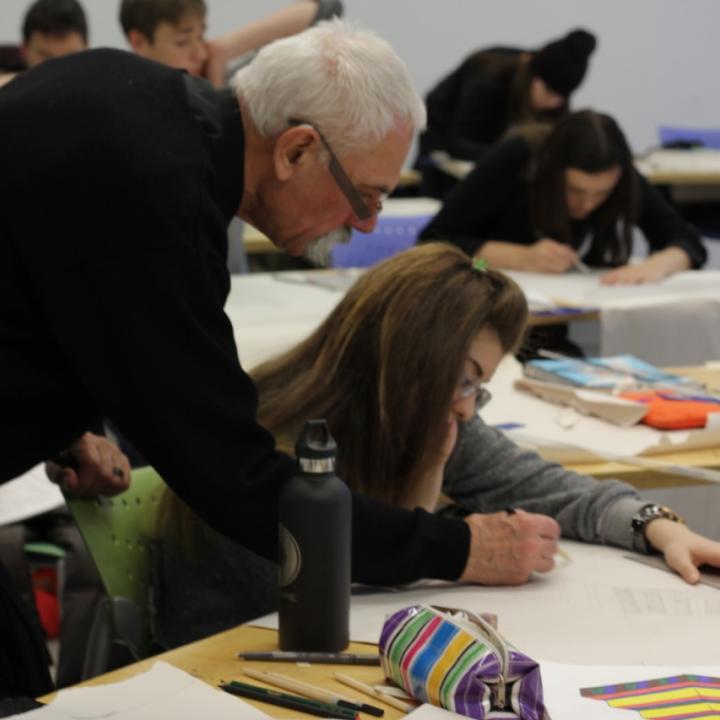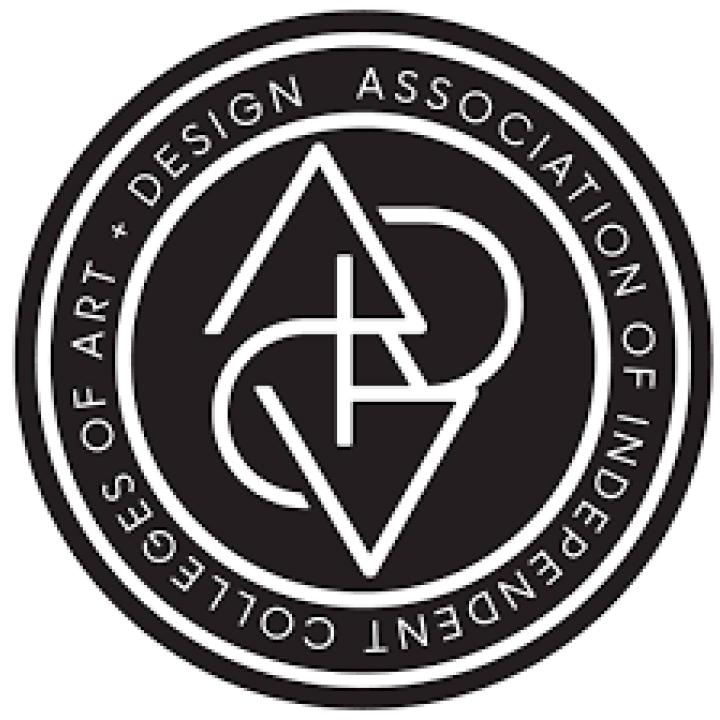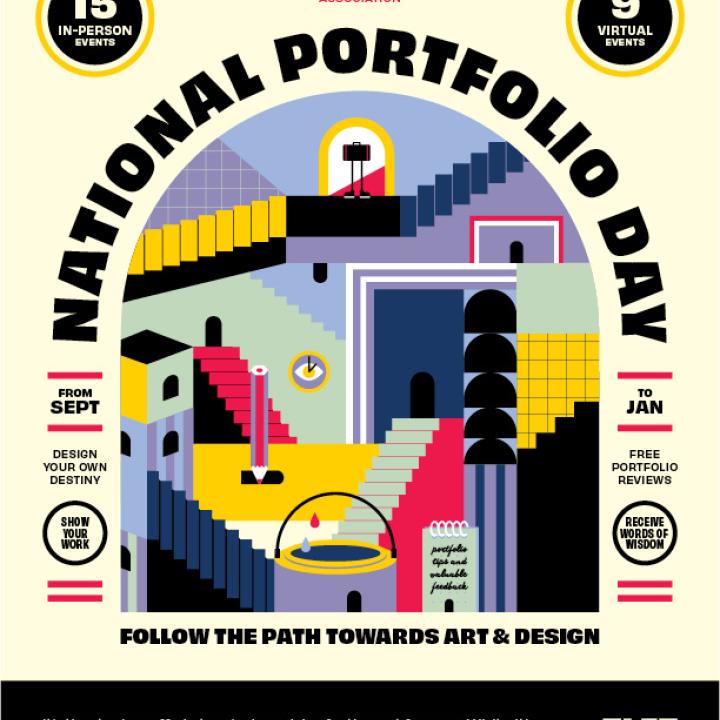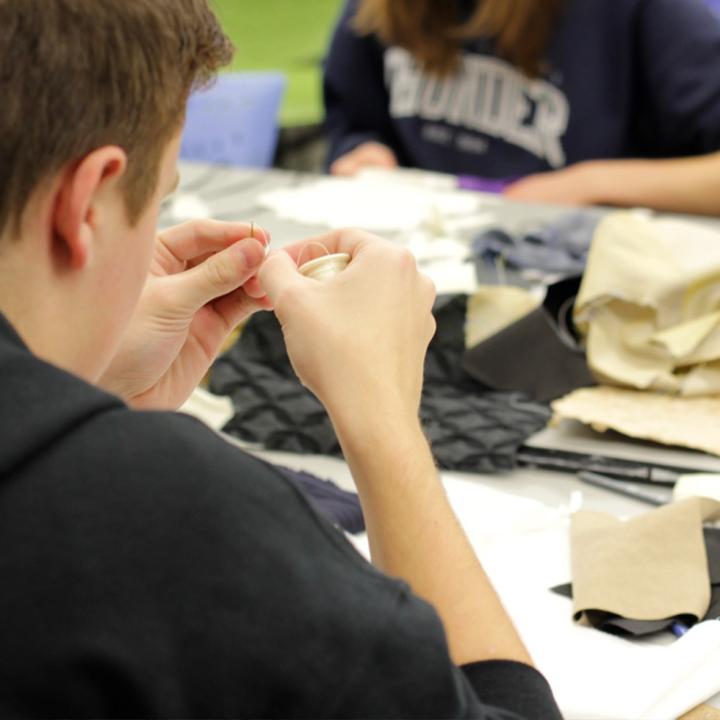Preparing a Portfolio
Portfolio Clinics
OCAD University has created a unique portfolio program with you in mind. Portfolio Clinics are designed for learners ages 15 and up interested in pursuing a creative pathway towards post-secondary education. We are excited to work alongside you in developing your studio art and design skills.
This series of workshops encompasses all aspects of the art and design process; these may range from research and conception, to problem solving, to finalizing and sharing.
Taught by OCAD U faculty who are professionals in their field, learners will come away with a better understanding of how studio-based research and creative process work can come together to support a strong portfolio piece. The various workshop offerings present an opportunity for participants to explore different techniques, mediums and approaches to a studio practice applicable to any art and design program.
Questions? Email: portfolioclinics [at] ocadu.ca (portfolioclinics[at]ocadu[dot]ca)
Please note: Not all workshops are available at every scheduled date. Portfolio Clinics may be subject to cancellation due to low enrolment.
Workshop Descriptions

Instructor: Nicholas Aoki
Description:
The sketchbook is an indispensable tool for the production and development of ideas. Inexpensive and portable sketchbooks make ideal companions for any image maker. As art objects, they offer more insight into their authors' process than any individual picture. However, as with any pursuit, they require focus and practice.
This 3-hour workshop will explore the sketchbook as: an index, a place for drawings and drawing practices; a research journal, a place for experimentation and media exploration; an ideation aid, a place where intention meets actualization. Finally, we will cover some best practices for submitting your sketchbook as a portfolio companion piece.
It is important to note that this workshop will be primarily concerned with the process side of image making. Therefore, it will focus on the initial stages that lead to final artwork, rather than final artwork itself. These drawings will be rough in finish, plentiful in number, and will hopefully be the catalysts for future artworks.
Materials you will need:
- 1 Sketchbook or paper surface for drawing
- 1 Ink and brush or brush pen.
- 1 light coloured drawing media (pencil, coloured pencil or felt-tip marker)
- 1 dark coloured drawing media (pencil, coloured pencil or felt-tip marker)
What you will learn:
- Sketchbook drawing exercises for process thinking and creating
- Ideation through loose thumbnail drawing
- Mark making and media exploration

Instructor: Chris Lange
Description:
With a focus on graphic design, animation, and typography, this workshop looks at the study and practice of letters and words and explores the effect of using text with image in creating an original 2D art or design work. Participants will also learn how to identify examples of historical, social and political type-driven work for inspiration towards a project idea.
In this 3-hour workshop, you will be using a variety of free and publicly accessible online tools to generate one or more moving .GIF formatted graphic artworks that hold both content and meaning, and that convey emotion and function through typography and animation. You may develop a typographic sensibility and voice for something louder, or something quieter, or for moments of surprise.
You will come away from this workshop knowing the weight and potential of words and their social impact as well as how to add your own interpretation and spin on message making design. Afterwards, you may discover that you are inclined towards a typographic voice and, a greater understanding of the role graphic design has played in social causes.
Materials you will need:
- Sketchbook or paper surface for drawing
- Coloured pencils, markers, ink pens or paintbrushes
- Coloured paper, found images or collaging materials
Suggested but not required materials:
- Smartphone or scanner
- Digital Camera
- Found text from emails, notes, text messages, newspapers or magazine
What you will learn:
- How to convey emotion and function through typography and animation;
- Different ways of combining new tools and techniques, digital and analog, to yield unpredictable results;
- How typography, automation, and animation can help transform one's creative voice
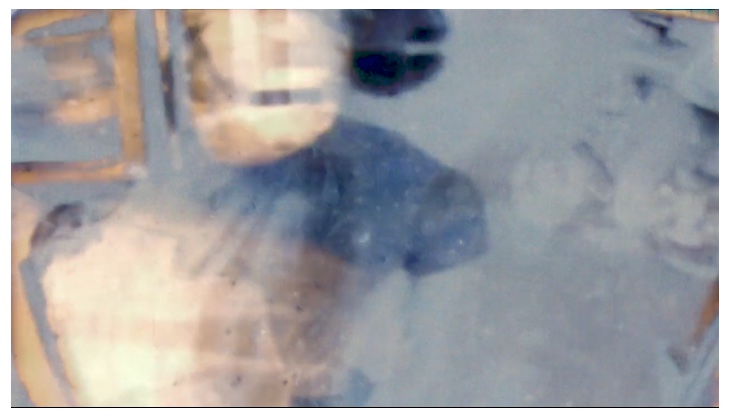
Instructor: Esery Mondesir
Description:
This three-hour workshop introduces you to the world of video art by establishing a direct connection between the moving image and painting. First, we will do a quick foray into contemporary art history to examine the ways in which painters and video artists/filmmakers have influenced one another. Then, we discuss conceptual and technical strategies you might use to come up with ideas for your work. Finally, you create your own “video painting” using whatever tools or equipment (e.g cellphone) to which you have access.
Materials you will need:
- Any camera (e.g cell phone, DSLR, old cameras, film camera etc.)
- The camera app https://www.filmicpro.com/ if you plan on using a cell phone
- A non-linear editing system ( cellphone, final cut 10, etc.)
What you will learn:
- How to identify examples of video artworks/or films that reference a painting or an art movement.
- How to formulate an idea for your own "video painting" in a short paragraph.
- How to create a short 3-minute "video painting" using what is available in your immediate environment.
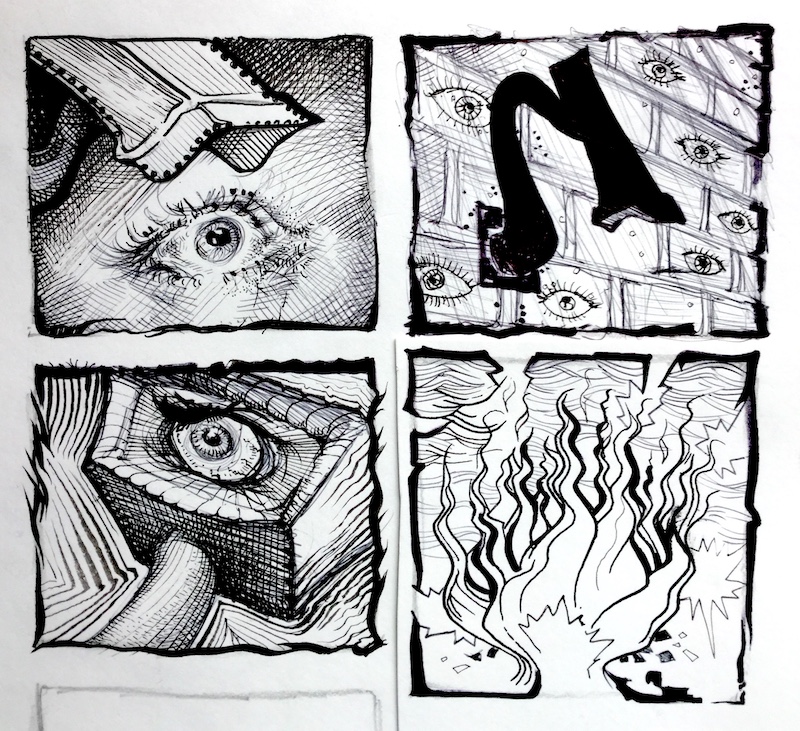
Instructor: Erin Finley
Description:
This three-hour workshop will explore techniques for drawing with fine-tip pen, dip pens, markers, and India ink. You’ll experiment with different approaches to ink-drawing while thinking about contour drawing, portraiture, graphic novels, poetry, and other creative prompts. Your instructor will guide you through several studio demonstrations aimed at helping you create detailed artworks during the workshop. Techniques such as hatching, cross-hatching, and pointillism will be covered alongside more painterly approaches to the medium. The workshop is designed to tap into your imagination and to help you utilize technical skills, but you'll also consider conceptual development, too, producing work that resonates with an audience. All levels of experience are welcome, as the workshop is designed so that everyone comes away with several new pieces.
Materials you will need:
- Pencil (mechanical or standard) and eraser
- Fine-tip black pen or an everyday black ballpoint pen
- Black markers of assorted thickness
- Ink brush or watercolour brush (one fine-tip and one larger brush)
- Sketchbook or watercolour paper (anything stiff enough to withstand liquid mediums)
- India ink (or black watercolour)
- Two containers for pouring ink/water into (ie. empty yogurt containers)
- Optional: Dip pen
What you will learn:
- To experiment with ink techniques;
- Demonstrate various mark-making approaches with wet and dry media;
- How to convey concepts in your work by using ink as a visual language that can express mood and meaning
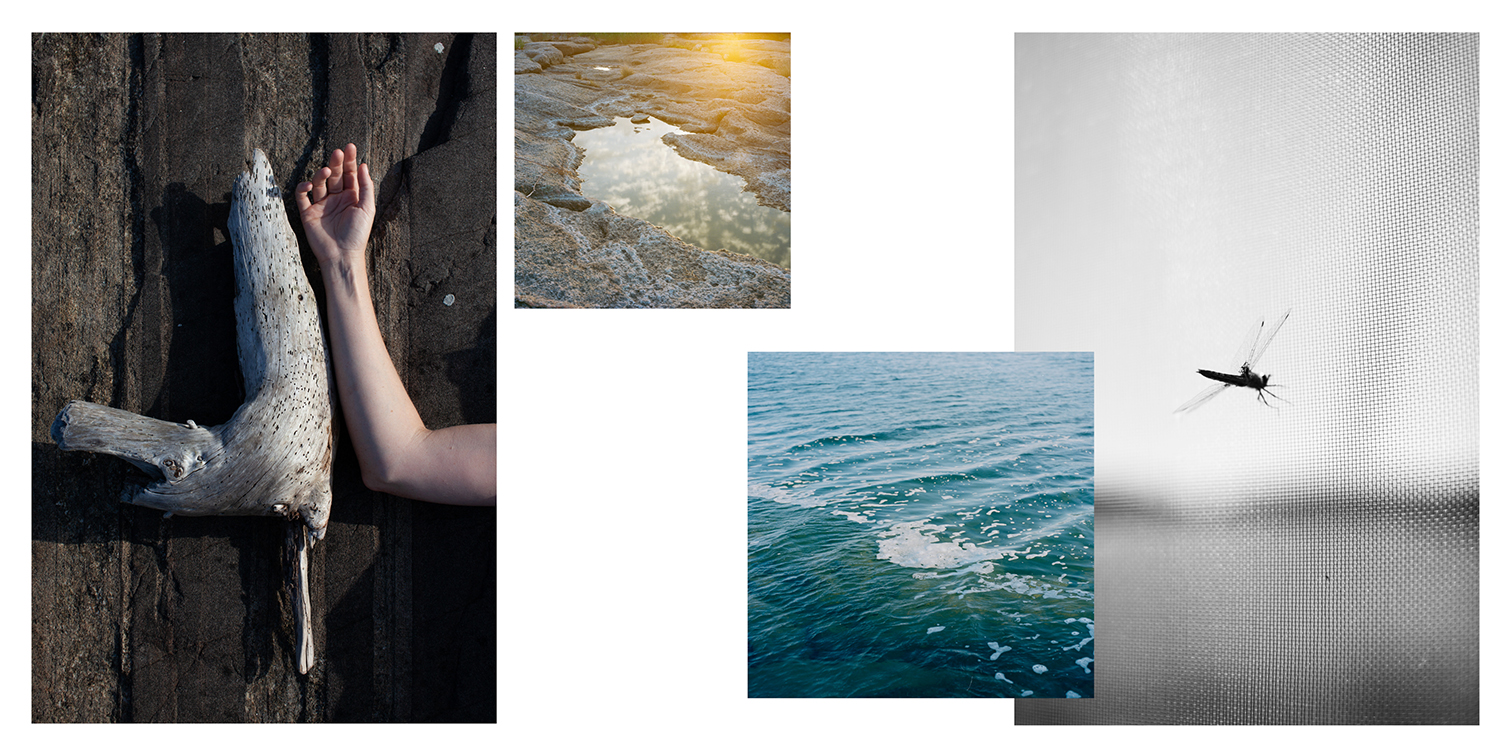
Instructor: Kate Schneider
In this two-part portfolio workshop, we will explore how to tell stories with photographs by starting with the question: What does home mean to you? In this workshop, we will consider how photographs can be more than representational descriptions – images can convey unseen concepts, such as feeling-states, memories, and identity.
Through a series of activities, discussions, brainstorming sessions, you will learn the techniques for conveying concepts with images and come away from the workshop with a photo series of 3 – 5 images that you can use for your portfolio. During the first session, we will look at how artists such as Larry Sultan, Rinko Kawauchi, and LaToya Ruby Frazier use images to express ideas and concepts about their home environments. Your instructor will then lead a series of exercises to start the production of your photo series. In the second session, we will discuss the various ways to sequence images, such as more linear narratives to the less linear poetic works, culminating in an editing and sequencing workshop of final your photo series. The workshop is designed to teach new technical skills along with uncovering what it means to speak visually.
Materials:
Any digital camera, including your smartphone.
A way to connect your camera to your computer, such as:
- an SD card reader, if you are using a DSLR or Mirrorless camera, or;
- USB cables, if you are using a smartphone, or;
- Airdrop or Bluetooth if you are using a smartphone.
- Image editing software, such as Photoshop, VSCO, or GIMP.
Learning Outcomes:
- Participants will learn about differences between representational and conceptual
- photography;
- Participants will demonstrate how to use multiple images to convey concepts;
- Participants will create their own photo series.
OCAD U reserves the right to make changes to this information. Inquire early as space is limited. Clinics may be cancelled due to low enrollment.
